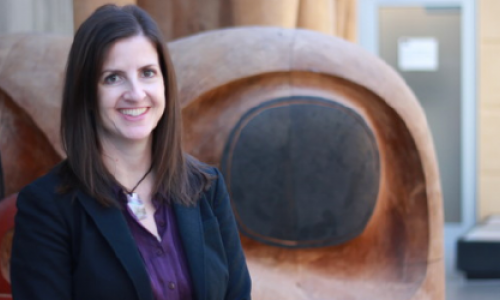
Nice guys finish last
When you are the outcast
Don't pat yourself on the back
You might break your spine
- Greenday, "Nice Guys Finish Last"
Did Greenday get it right? Are the modest and unassuming among us doomed to a lifetime of worldly hand-me-downs at the behest of our more boastful societal elder siblings? Are nice people no more than spineless wimps, waiting to be crushed by the world's more fortitudinous vertebrates?
I sometimes get the impression that there's a lot of people out there in some kind of epic struggle, with core values and personality traits pitted against certain beliefs around what it takes to be successful. There's a feeling that, in order to achieve success - in a job interview, say - a specific kind of sacrifice must be made. That sacrifice, or the feeling of 'selling out,' often leaves people feeling dirty like they just faked it, and if they revealed what they really thought about themselves and their abilities, no one would want anything to do with them.
I'm talking, of course, about talking about yourself. Business-types often use phrases like "selling yourself" to describe this unpleasant process. Of course, phrases like that are exactly why talking about yourself seems so unpleasant. There's a reason people don't go into advertising, and it usually has a lot to do with core values they're not willing to compromise. So it shouldn't come as a surprise to find that those same people find it difficult to talk about themselves when we're using an advertising metaphor to describe how to do so.
I don't know how many times I've said it, but I'll say it here for good measure. You're not a product to be bought and sold. You're a person. There are ways of thinking about this whole matter of talking about yourself that reflect that reality more closely.
Perhaps the most outspoken voice in this arena is Cathy Keates, author of the wonderful book, "Not For Sale: Why We Need A New Job Search Mindset." Cathy's view is that the 'sales mindset' that has dominated the job search arena for decades isn't actually working. She advocates instead for what she calls the 'integrity mindset,' which emphasizes ethics, dignity, and authenticity.
In an interview published in University Affairs magazine, Cathy describes her position with eloquence:
I think commercialization and commoditization are symptoms of a larger framework in which everything is for sale, including us. We seem to live during times in which an economic metaphor of life and society is the dominant paradigm. “Job search as sales” neatly fits this paradigm – so if we are not questioning this economic metaphor, “job search as sales” just seems like the way things are.
I find that both gregarious and shy people are often uncomfortable with selling themselves, in particular, shy people are often intimidated by a lot of job search advice and often feel like they can’t live up to the standards set by instructions to think and act like a salesperson. In contrast, focusing on [one’s] integrity can be a relief.
Cathy speaks the truth - I see that relief on the faces of students on an almost weekly basis.
So, inspired by Ms. Keates' groundwork on the integrity mindset, how can you talk about yourself without being an arrogant jerk? Here are three of my thoughts.
Acknowledge yourself
Easier said than done, I know. But if you can be honest with yourself about the strengths you have, it will be the easiest thing in the world, to be honest with someone else about them too. While it is a difficult thing to learn about your strengths, the process involves looking at objective data - situations in which you've demonstrated those strengths in the past, thus constituting evidence to support the belief that those strengths do indeed exist. Claiming you're good at something without providing backing evidence as support is arrogant. Giving a thoughtful account of your abilities as evidenced by specific examples is acknowledging that you have inherent value.
Avoid making assumptions
Yes, we all know what assuming does to you and me. But sometimes a cliché is a cliché because it's the plain truth. Assumptions are an excellent example of crossing the line between confidence and arrogance. For example, there's a big difference between saying "I will be a valuable asset" and "I believe I will be a valuable asset." The former is an assumption that could be interpreted as arrogant, while the latter is an honest and accurately stated belief that conveys honesty and confidence.
Take a different perspective
You might have a hard time talking about yourself, but would you have any trouble talking about your best friend's strengths? Of course not! That's because you have the luxury of not being able to hear all the insecure thoughts going through their mind (which everyone has, trust me). It's the same reason they would have no problem talking about your strengths, but would most likely have a more difficult time talking about their own. We're often too busy thinking about all the things we'd like to change about ourselves, that we don't see and properly appreciate the wonderful things that are already there, out in the open for everyone else to see! So try talking about yourself as if you were someone else, who couldn't hear what was going on in your mind.
And consider checking out Cathy Keates' book!
















